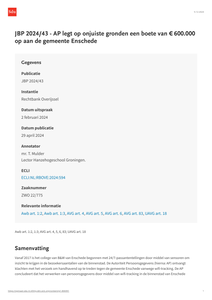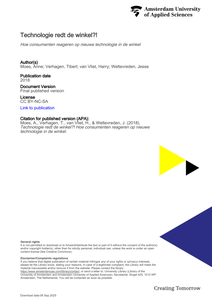The combination of self-tracking and persuasive eCoaching in healthy lifestyle interventions is a promising approach. The objective of this study is to map the key components of existing healthy lifestyle interventions combining self-tracking and persuasive eCoaching using the scoping review methodology in accordance with the York methodological framework by Arksey and O’Malley. Seven studies were included in this preliminary scoping review. Components related to persuasive eCoaching applied only in effective interventions were reduction of complex behavior into small steps, providing positive motivational feedback by praise and providing reliable information to show expertise. Concerning self-tracking, it did not seem to matter if more action was required by the participant to obtain personal data. The first results of this study indicate the necessity to identify the needs and problems of the specific target group of the interventions, due to differences found between various groups of users. In addition to objective data on lifestyle and health behavior, other factors need to be taken into account, such as the context of use, daily experiences, and feelings of the users.
DOCUMENT

The enhancement of GPS technology enables the use of GPS devices not only as navigation and orientation tools, but also as instruments used to capture travelled routes: as sensors that measure activity on a city scale or the regional scale. TU Delft developed a process and database architecture for collecting data on pedestrian movement in three European city centres, Norwich, Rouen and Koblenz, and in another experiment for collecting activity data of 13 families in Almere (The Netherlands) for one week. The question posed in this paper is: what is the value of GPS as ‘sensor technology’ measuring activities of people? The conclusion is that GPS offers a widely useable instrument to collect invaluable spatial-temporal data on different scales and in different settings adding new layers of knowledge to urban studies, but the use of GPS-technology and deployment of GPS-devices still offers significant challenges for future research.
DOCUMENT

AIOSAT - Autonomous Indoor & Outdoor Safety Tracking System
MULTIFILE

AP legt op onjuiste gronden een boete van € 600.000 op aan de gemeente Enschede
DOCUMENT

Purpose – In the domain of healthcare, both process efficiency and the quality of care can be improved through the use of dedicated pervasive technologies. Among these applications are so-called real-time location systems (RTLS). Such systems are designed to determine and monitor the location of assets and people in real time through the use of wireless sensor networks. Numerous commercially available RTLS are used in hospital settings. The nursing home is a relatively unexplored context for the application of RTLS and offers opportunities and challenges for future applications. The paper aims to discuss these issues. Design/methodology/approach – This paper sets out to provide an overview of general applications and technologies of RTLS. Thereafter, it describes the specific healthcare applications of RTLS, including asset tracking, patient tracking and personnel tracking. These overviews are followed by a forecast of the implementation of RTLS in nursing homes in terms of opportunities and challenges. Findings – By comparing the nursing home to the hospital, the RTLS applications for the nursing home context that are most promising are asset tracking of expensive goods owned by the nursing home in orderto facilitate workflow and maximise financial resources, and asset tracking of personal belongings that may get lost due to dementia. Originality/value – This paper is the first to provide an overview of potential application of RTLS technologies for nursing homes. The paper described a number of potential problem areas that can be addressed by RTLS. Published by Emerald Publishing Limited Original article: https://doi.org/10.1108/JET-11-2017-0046 For this paper Joost van Hoof received the Highly Recommended Award from Emerald Publishing Ltd. in October 2019: https://www.emeraldgrouppublishing.com/authors/literati/awards.htm?year=2019
MULTIFILE

Don’t mind me while I drive through your neighborhood taking photo’s of your house, gathering your emails, passwords and other private information from your wifi network. It’s nothing personal, I’m doing it to everyone, in every street, in over 30 countries. Perhaps you can also excuse me while I give access to data you and your friends shared with me and each other, to individuals and companies I have no relation to or control over at all, and while leaking your data, again it’s nothing personal, I’m doing it to 87 million others, you probably won’t mind me showing you and 126 million others some political disinformation, there’s an election coming and I could really use the money. It’s not as if we don’t know each other, I’ve been following your every move online for years now, and it’s no secret that I’m worth hundreds of billions because I sell access to you, promising my customers influence over your voting and purchasing behavior. I’ve got power. Monopolies are rare lol. If all this makes you uncomfortable, you can always cut ties with me and everyone you work and communicate online with, but what would that solve? Your friends are totally oversharing…
MULTIFILE

CC-BY-NC-ND This paper was presented at the IADIS Multi Conference on Computer Science and Information Systems MCCSIS2020 There is an increasing interest in indoor occupation and guidance information for business and societal purposes. Scientific literature has paid attention to various ways of detecting occupation using different sensors as data source including various algorithms for estimating occupation rates from this data. Gaining meaningful insights from the data still faces challenges because the potential benefits are not well understood. This study presents a proof-of-concept of an indoor occupation information system, following the design science methodology. We review various types of sensor data that are typically available or easy-to-install in buildings such as offices, classrooms and meeting rooms. This study contributes to current research by incorporating business requirements taken from expert interviews and tackling one of the main barriers for business by designing an affordable system on a common existing infrastructure. We believe that occupation information systems call for further research, in particular also in the context of social distancing because of covid19.
MULTIFILE

Technologie speelt een onmiskenbare en steeds groter wordende rol in de retail. Niet langer is de invloed ervan beperkt tot de logistieke processen zoals voorraadbeheer en financiële processen zoals kassabeheersystemen, maar technologie is ook steeds prominenter aanwezig in de directe dienstverlening aan de consument. Bij zaken als personalisatie, het creëren van klantbeleving en klantloyaliteit is technologie steeds meer zichtbaar aanwezig, zowel online als offline. Echter, de introductie van nieuwe technologie in de retail gaat langzaam. Redenen hiervoor zijn onder andere: de overdaad aan keuze aan nieuwe technologieën, de soms benodigde grote investeringen, de technologie is niet altijd uitontwikkeld, de onzekerheid over effecten op de werkelijke omzet en een zeker conservatisme bij de retailer (“ik heb dat niet nodig”).
DOCUMENT
